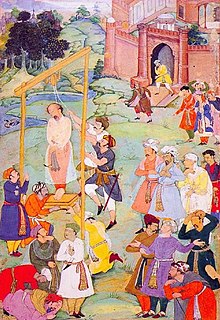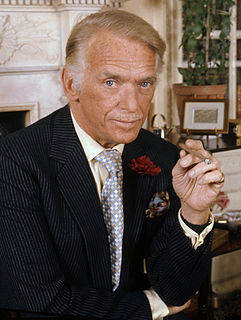A Quote by C. S. Lewis
The modern habit of doing ceremonial things unceremoniously is no proof of humility; rather it proves the offender's inability to forget himself in the rite, and his readiness to spoil for every one else the proper pleasure of ritual.
Related Quotes
The humility of Jesus can be seen in the crib, in the exile to Egypt, in the hidden life, in the inability to make people understand Him, in the desertion of His apostles, in the hatred of His persecutors, in all the terrible suffering and death of His Passion, and now in His permanent state of humility in the tabernacle, where He has reduced Himself to such a small particle of bread that the priest can hold Him with two fingers. The more we empty ourselves, the more room we give God to fill us.
A central feature of the ceremonial associated with Mithras was the taurobolium, the ritual slaughter of a bull which commemorated and repeated Mithras' primeval act. The initiate was baptized in its blood, partaking of its life-giving properties. It may be noted that this part of the ceremonial closely resembled the ritual of the cult of Cybele, the Great Mother of Asia Minor, which had been brought to Rome three centuries before Christ.
We forget that, although freedom of speech constitutes an important victory in the battle against old restraints, modern man is in a position where much of what "he" thinks and says are the things that everybody else thinks and says; that he has not acquired the ability to think originally - that is, for himself - which alone gives meaning to his claim that nobody can interfere with the expression of his thoughts.
The art of music is good, for the reason, among others, that it produces pleasure; but what proof is it possible to give that pleasure is good? If, then, it is asserted that there is a comprehensive formula, including all things which are in themselves good, and that whatever else is good, is not so as an end, but as a mean, the formula may be accepted or rejected, but is not a subject of what is commonly understood by proof.
Love is in the pleasure of possession, but in the Love of Allah there is no pleasure of possession, because the stations of the Reality are wonderment, the cancelling of the debt which is owed, and the blinding of vision. The Love of the human being for God is a reverence which penetrates the very depths of his being, and which is not permitted to be given except to Allah alone. The Love of Allah for the human being is that He Himself gives proof of Himself, not revealing Himself to anything that is not He.




































